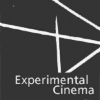[url=http://expcinema.org/site/index.php?option=com_content&task=view&id=91&I... Isidore Isou (1925-2007)[/url]
[img]http://expcinema.org/site/images/stories/news/isou.jpg[/img]
[b]Isidore Isou[/b], the romanian-born french writer, passed away last July 28th in Paris. Isou, founder of the lettrist movement and author of the [i]Manifeste du cinema discrepant, [/i]which systematized the separation between image and sound in the cinema, had been very ill in the last years of his life.[br /]
[br /]
His most known cinematic work, [i][b]Traite de bave et d'eternite[/b][/i] (1951) has been recently published in the USA by Kino in the DVD compilation [url=http://www.kino.com/video/item.php?film_id=865][i]Avant-Garde 2: Experimental Cinema 1928-1954[/i] [/url]and will be available later this year in a [u]new restored edition[/u] by [url=http://www.re-voir.com]Re:Voir[/url][br /]
Thu, 02/08/2007 - 13:31
#1

[url=http://www.expcinema.com/site/index.php?option=com_content&task=view&id=... Isidore Isou (1925-2007)[/url]
[img]http://www.expcinema.com/site/images/stories/news/isou.jpg[/img]
[b]Isidore Isou[/b], the romanian-born french writer, passed away last July 28th in Paris. Isou, founder of the lettrist movement and author of the [i]Manifeste du cinema discrepant, [/i]which systematized the separation between image and sound in the cinema, had been very ill in the last years of his life.[br /]
[br /]
His most known cinematic work, [i][b]Traite de bave et d'eternite[/b][/i] (1951) has been recently published in the USA by Kino in the DVD compilation [url=http://www.kino.com/video/item.php?film_id=865][i]Avant-Garde 2: Experimental Cinema 1928-1954[/i] [/url]and will be available later this year in a [u]new restored edition[/u] by [url=http://www.re-voir.com]Re:Voir[/url][br /]
A great post about Isou
http://www.jjmurphyfilm.com/blog/?p=60
Please point out to me the thoughts expressed in this post that qualify as “great.”
Were they in the first paragraph where he bemoans the critical establishment of NYC media circa 1967 while holding up lightweight phrase-smith Dargis as an exemplar of erudite critical perception? And yes, I did read Crowther in 1967. Unlike Mr. Murphy, instead of wasting my time whining about the prevailing cultural winds, I shrugged my shoulders and sought out Ozu, Mekas, and Brakhage.
Possibly those great thoughts were in the second paragraph, where he wiped the nervous sweat off his brow on discovering the “third” death wasn’t Godard, but only Isou? And then, the irony! His most famous film just came out on DVD!
Is the greatness in the third or fourth paragraphs? The paragraphs that consist of Wiki-like background facts? Well at least we get some meat in our stew, including the useful information about the Re:Voir version of the film.
The next three paragraphs are a strict retelling of what any viewer who has seen the film will know. Again, the type of content usually found on a bad DVD commentary. After a two paragraph interruption in which real critical thought is expressed (regardless of its value), it’s back to the retelling of which any viewer can see, provided his eyes are open. This retelling lasts for eight tedious paragraphs. The viewer doesn’t even have to be thinking while watching in order to catch these things, as this is the film’s content. OK, I exaggerate. He did preface one description with the word “dubious.”
His last paragraph does contain actual critical content, though I found it to be of that rah-rah ordinary type usually written by advocates of personal cinema. This is the paragraph that really prompted this note. When will the day come when we can read critical, discriminating essays on works of an experimental nature? It is as if those that admire such work are reluctant to criticize, as they feel that there are already enough Crowthers in the world.
Mmmm, yes, after having read your thoughts about it, "great" seems a big overstatement. What did I like about the post? The commentary (although as you say, almost completely descriptive, specially in the commentary of the second part) about Venom and Eternity. Probaly due to the fact that I hadn't read anything on this piece before (my lack).
[quote="MEstes"]When will the day come when we can read critical, discriminating essays on works of an experimental nature? It is as if those that admire such work are reluctant to criticize, as they feel that there are already enough Crowthers in the world.[/quote]
I'd love to see that too. When I watch a piece, of course, I can tell if I liked it or not, what parts of it impressed me most and why, but as you say, I find some reluctance in talking about its possible "flaws". Why? Part of it comes from the lack of knowledge about the artist's intentions, what prompted him/her into doing so and so, and yes, also the "fear" (as art nowadays use constant references) that I'm missing something. Maybe I fear to make a fool of myself? ;D
Add new comment